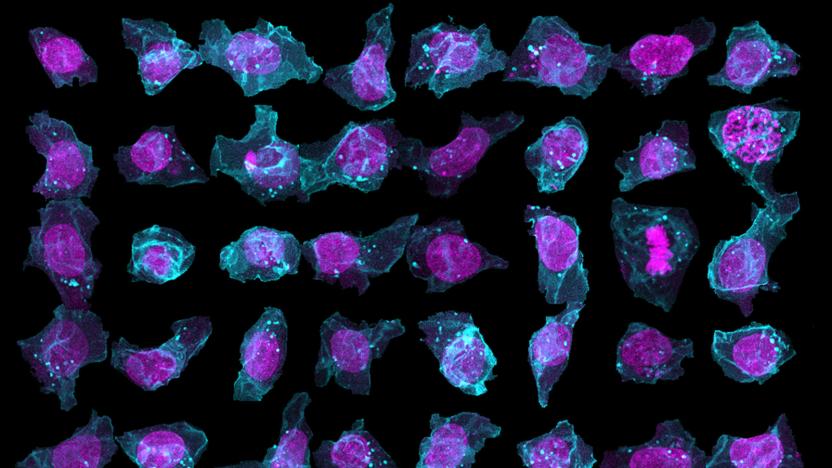alleninstitute
Latest

Microsoft co-founder Paul Allen dies from cancer at 65
It's a sad day for the technology world, as Microsoft co-founder Paul Allen has died at the age of 65 due to complications from non-Hodgkin's lymphoma. The tech pioneer had been grappling with the cancer for years after being first diagnosed in 1982 and receiving treatment for it in 2009, but announced that it had returned on October 1st. He leaves behind his sister and had no children. His influence, however, will likely be felt for a long time to come.

AI predicts the layout of human stem cells
The structures of stem cells can vary wildly, even if they're genetically identical -- and that could be critical to predicting the onset of diseases like cancer. But how do you know what a stem cell will look like until it's already formed? That's where the Allen Institute wants to help: it's launching an online database, the Allen Cell Explorer, where deep learning AI predicts the layout of human stem cells. You only need a pair of identifying structures, like the position of the nucleus, to fill out the rest of the cell's innards.

Microsoft co-founder's academic search engine adds neuroscience
Researchers, scientists and academics around the world publish roughly 2.5 million scientific papers each year, on top of a backlog of more than 50 million papers dating back to 1665. Plus, the rate at which researchers publish these academic papers keeps rising, a la Moore's Law. It's impossible for scientists to read every paper published in their fields, and searching for a specific study can be a daunting task. Enter: Paul Allen, Microsoft co-founder and leader of the non-profit Allen Institute for Artificial Intelligence. The Allen Institute's latest effort is Semantic Scholar, a scientific-paper search engine powered by machine learning and other artificial intelligence systems.

Presenting the most comprehensive map of the human brain
Ask a neurologist -- as far as brains go, humanity has one of the largest and most complex thinking muscles on the planet. That's why researchers have never really had a good atlas of the human brain's underlying structure. According to the Allen Institute, documentation on the model of the human brain is so outdated, that it's still commonplace for scientists to reference mappings from almost a century ago. Well, at least it was: the Institute has just published what it says is the highest resolution atlas of the human brain, one it hopes will become a new standard resource for brain researchers.

Allen Institute completes gene expression map of the human brain in high-resolution 3D
As a species, we've spent a lot of time learning how the human brain works, but we've had to go without a true, thorough map of how genes manifest themselves in our craniums; previous maps have been limited to the simpler minds of mice. The Allen Institute for Brain Science is now known to have solved that mystery by recently finishing an extensive, detailed 3D atlas of genetic expression within our own brain tissue. Accomplishing the feat required no small amount of resources, including the definition of 900 subdivisions, conducting over 62,000 gene expression probes and producing the MRI scans of two and a half brains, but the result is a potentially vital tool for neuroscience and education. Curious web users can see a visual map of gene expression based on virtually any criteria they need, whether it's a physical region of the brain, a disease type or the exact gene they'd like to track down. For many, the best news about the map may simply be that it's free and public: anyone with enough experience in genetics can learn more about what makes the mind tick through their browsers, and what they find might just lead to new discoveries.


